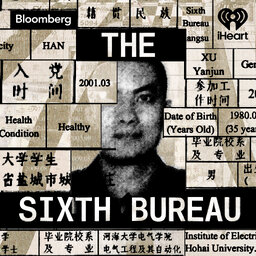The Clintons and Corruption, Part II: White Water, Dirty Money and Larger Problems
From the politics of Arkansas to the heights of Presidential power, Bill and Hillary Clinton have become one of the world's most influential political power couples -- and, along the way, they've garnered a ton of allegations and accusations. In part two of this series, Ben and Matt dive into the allegations surrounding Whitewater, financial shenanigans and more.
In 1 playlist(s)
Stuff They Don't Want You To Know
From UFOs to psychic powers and government conspiracies, history is riddled with unexplained events.…Social links
Follow podcast
Recent clips

CLASSIC: White Supremacy Infiltrates the Military
55:14

Strange News: Trump and Aliens, Andrew Gets Arrested, The Story of Takeru Kobayashi and More
58:32

Introducing: The Sixth Bureau
00:58
 Stuff They Don't Want You To Know
Stuff They Don't Want You To Know